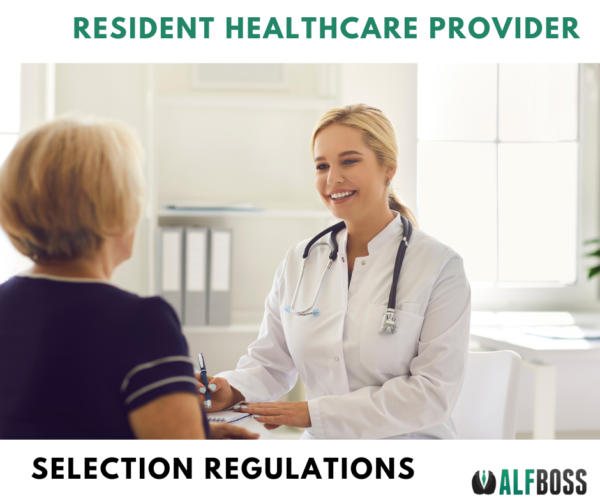
Written By: Pascal Bergeron
Assisted living facilities (ALFs) are often in a tight position when it comes to the health care of their residents, as far as relating to the healthcare providers that residents utilize. In this mix, there’s an important rule: ALFs may not mandate residents to receive services from a specific healthcare provider. While this regulation aims to safeguard individual choice, it conflicts with facility preferences with the preferred ALF practice of encouraging residents to opt for providers who frequently visit the facility. This article explores the art of striking this balance while highlighting the advantages of nurturing relationships with familiar healthcare providers.
The Interplay of Preferences: ALFs usually really like healthcare providers who are always around. They believe these providers know a lot about what residents need and how the ALFs work. This connection helps everyone better care communication which leads to quicker care responses, which helps to make better decisions and provide better resident health care.
Regulation in the Spotlight: 59A-36.007 Resident Care Standards.
(3) ARRANGEMENT FOR HEALTHCARE
(c) The facility may not require residents to receive services from a particular healthcare provider.
Balancing what residents want and giving them great care requires following the rules closely. The rule says residents can pick their own healthcare provider without anyone forcing them. So, making sure residents have a say in which healthcare providers they select is crucial.
Upholding Resident Autonomy: Championing both quality care and resident choice necessitates a strategic ensemble of practices:
- Educational Enlightenment: Equip residents with knowledge about their right to choose providers and elucidate the merits of facility-preferred options.
- Transparent Dialogues: Articulate the advantages of facility-frequented providers, including their familiarity with ALF dynamics and seamless communication channels.
- Synergetic Partnerships: Foster collaboration between facility-preferred providers and residents to ensure personalized care aligns with individual preferences and expectations.
- Informed Consent Pinnacle: Prioritize well-documented informed consent processes, ensuring residents are fully apprised of available healthcare choices.
- Systematic Reviews: Routinely refresh the roster of facility-preferred providers, thereby presenting residents with an array of diverse options.
Seeing Things from AHCA’s Eyes: AHCA surveyors check how well ALFs are following the rules. They talk to residents during visits to see if everything’s okay. One thing they often residents is if they got to choose their healthcare provider. What residents say is important, and it shows why keeping track of and documenting their choices is a big deal so you are not cited. Remember it will be your word against the residence and if it’s not documented, it did not happen.
![]()
DOWNLOAD
Informed Consent for Facility Healthcare Provider Services